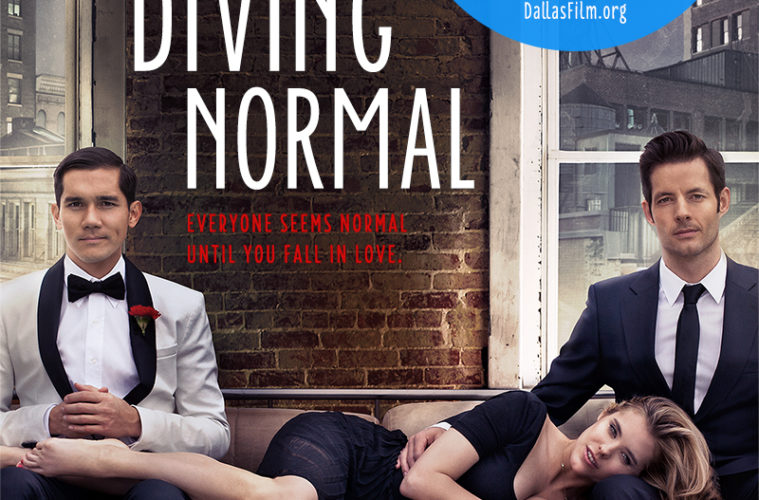If you’ve ever spun quarters on a table and seen them sometimes gravitate towards each other and then violently ricochet off one another, you get a sense for Diving Normal. Everyone has personal demons they must overcome, but you have to fix your issues. Someone else can’t do that for you, which is why we see our female lead, Dana (Susie Abromeit), being warned to not form a relationship while she is going through substance abuse rehabilitation. The reason isn’t because there is danger in the relationship itself — no, Gordon (Scotty Crowe), the pretty, sharp, and perfectly put together suitor is willing to help. The risk is that if a relationship crumbles during the process of recovery it can send someone spiraling. They have to have a clean head space, and Diving Normal shows the dangers of not keeping your road clear of stops.
So often we see the beginning of recovery inside an institution or the end of it. Rarely do we join someone already 30 days sober, and yet here we are. Adding to the oddity is that Gordon’s best friend and apartment neighbor, Fulton (Philipp Karner), is a high-functioning autistic of sorts. I’m purposely vague here because his illness is never really stated. We just know that he is often awkward when not being outwardly sweet. “I am being relaxed,” Fulton often remarks, “Remember, no pleats?” Yet, despite his flaw, he also harbors a kind face that is easy to look at. We get the sense early on that Fulton is the mastermind behind the romantic excursions Dana and Gordon go on. Gordon is Fulton’s one constant in his life, outside of diving at the local pool with a young kid he sees as his friend. When Fulton invites Dana to join her one day, she acquiesces to his charms. He asks her to give him a score of his dives which he looks forward to seeing. He’s looking for feedback, but also friendship and a way to share his passion for diving. He obsesses a bit over it, constantly seeking a very straight dive with little splash, but it is something he still takes great pleasure in.

Everything is going well. Dana is staying sober, and isn’t feeling pressure from Gordon. They are taking it slowly. However, he’s got hangups of his own. A coworker he’s had a casual sexual relationship with still continually pursues him in an aggressive manner. Yet, he can’t seem to tell her that their casual relationship can no longer be what it was. Why he is hung up on her isn’t clear, but you get the impression he is doing it so he doesn’t have to do something difficult. The flip side is that she also begins helping his career, and he has incentive to keep her hanging around. Here we find the theme brewing that we often use each other. That may not always be a sexual favor for furthering a career, but in the real world there doesn’t always have to be something so concrete and easy to label. Dana needs an anchor, as her one friend, an aspiring model who enjoys partying a bit too hard, isn’t the best fallback. There’s also her mother, who has her own issues stemming from Dana’s past and her current poor health.
We revolve around each other. Sometimes our planets find a new gravitational pull, but it has to be a mutually beneficial. This can’t be a one-sided affair. If there is love shown, love should be given in return. If that’s not the case, you should step back and reevaluate the relationship. Doing that isn’t easy, especially early in a relationship. The love-at-first-sight drive is powerful and emotions can hinder us from getting true perspective. Within this, we are exposed to some truly stunning and hard-to-watch moments. As fun as Diving Normal is at times, the subjects it deals with are dealt with honestly. You cringe during certain moments and that kind of visceral reaction is sold by the three leads and first-time director Kristjan Thor, making Diving Normal an experience you won’t soon forget.
Diving Normal screened at Dallas International Film Festival 2013.

